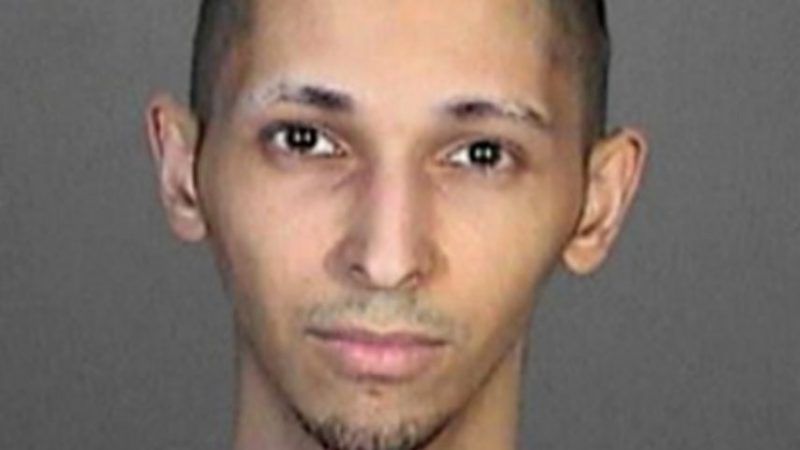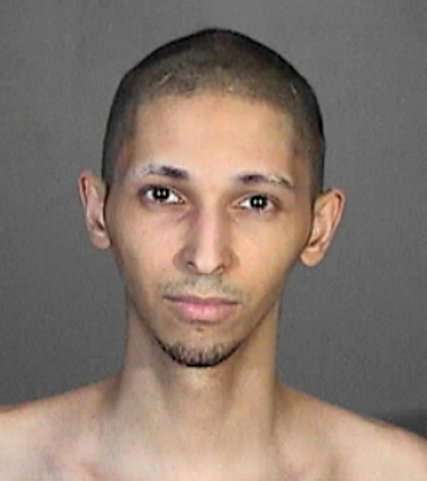Here's a Novel Idea: Hold Both Caller and Police Officer Responsible for Deadly 'Swatting'
Let's avoid false dilemmas when exploring blame.


A Los Angeles man has been arrested for telling police a hostage situation was underway at a home in Wichita, Kansas. His claim was a lie, and the police fatally shot a man in the ensuing raid.
Tyler Barriss, 25, is accused of calling city hall in Wichita claiming that a shooting and hostage situation were unfolding at a local home. Barriss apparently was attempting a "swatting" prank on somebody he was having an argument with online over the video game Call of Duty.
"Swatting" pranks are nasty stunts where a caller draws a SWAT team out to an innocent party's home by calling the authorities and pretending a dangerous crimeis taking place there. They've grown increasingly popular over the past few years as a way of frightening or getting revenge on somebody.
Barriss was not having a dispute with Andrew Finch, 28, a father of two in Wichita, nor anybody else at the address he sent police to. The person Barriss was arguing with had given him a fake address. A SWAT team showed up at Finch's door, and when he went outside to see what was going on, a police officer shot and killed him.
This appears to be the first time somebody has been killed by a swatting prank, though people have previously been shot and injured. Barriss has a criminal background and was previously arrested for calling in phony bomb threats to ABC Studios in Los Angeles.
An example of how pioneering this case is: Right now the police and prosecutors don't seem able to tell the media what Barriss is actually being charged with. He's being held on a felony warrant without a bond, but the charges might not be revealed until his first court appearance this week.
The case has unfortunately quickly and predictably turned into a "Who's to blame?" question. It's literally in the headline of New York Times' coverage of Finch's death: "Fatal 'Swatting' Episode in Kansas Raises Quandary: Who Is to Blame?" Is it Barriss, who fabricated a crime? Or is it the officer, who shot an unarmed, innocent man?
This is a false dilemma. Both are to blame.
If Barriss is indeed the man who called the police, he is responsible for sending a group of armed people into an environment where they believed violence was happening and innocent lives were at stake. Now, what that looks like in terms of holding Barriss criminally responsible is a complicated and challenging problem. Libertarian lawyer Ken "Popehat" White has suggested rewriting laws to make swatting somebody a felony. Read his explanation here.
But that doesn't mean the officer who shot Finch behaved appropriately. It's frustrating and depressing to see that, even when the police know they made a very serious mistake, they are circling the wagons. From The New York Times:
Chief Livingston said Mr. Finch, who was unarmed and apparently not the intended target of the online prank, did not immediately comply with officers' commands and moved his hands to his waistline, leading one officer to fear he had drawn a weapon.
That's right—they went straight to the well-worn "The officer thought he was reaching for a weapon" defense even though we all know by now that he was just some random guy. Finch's mom says the police never announced themselves. Finch had no way of knowing that he was in danger of getting shot. And yet police are instinctively trying to pin the mistake on Finch.
The Times notes that laws typically allow officers to shoot people when they "reasonably believe" they are in danger. This has created an environment where police officers are incentivized to exaggerate a sense of danger because it will allow them an excuse for mistakes and even for reckless behavior.
Livingston's responses to the shooting are very much a concern, because they don't suggest that he sees any sort of problems in the way his police responded to this call. In the Times piece, University of Kansas Law Professor Jean Phillips even suggests that Livingston's insistence on defending the cop could actually undermine efforts to hold Barriss responsible for Finch's death. If Finch's shooting is deemed "justifiable," what is the extent that Barress could be held criminally liable?


Show Comments (320)